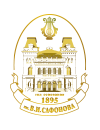
Leo Tolstoy "Anna Karenina"

About
From history:
* Tolstoy begins to write a novel "around modern life" (from the first months of 1873. In March 1874, the author of fromtaet pervu chast Novel in typographers, but at the same time the rest of the seal. "...I stopped printing my novel and I want to quit it, so that it could be UN-I don't like it," writes the United Nations great—aunt Alexandra Andreevna Tolstoy.
* Material interest forces him to change his plans: Tolstoy urgently needs money to buy land, and the Russian Bulletin magazine offers him 20 thousand rubles in advance for a book that has not yet been completed. Work resumes in January 1875, but it goes hard, Tolstoy complains to correspondents: "I'm taking on boring, vulgar Karenina," "I'm disgusted, yes, this is what I wrote," "my Anna is boring me again bitter radish."
* The turning point comes after a trip to Moscow in November 1876; Tolstoy's woman Sofya Andreevna writes to her sister: "Tolstoy, lively and focused, adds an entire chapter every day." The spring of 1877 is a legitimate novel.
* The author unfolds a picture of his contemporary commitment to life, and again looking from the window of parallel compositions: with extreme simplification, "Karenina" is two almost non—overlapping stories, Anna's affair with Vronsky, and the breakup with her husband, Levin's love, and you, and the beginning of their family life taught.
* Based on Tolstoy's language — a complex syntax with expanded periods, and extremely "non-bookish" speech: so that he can UN-gives additional credibility, literally heightens the weight with the author's statements, and preserves the naturalness of the characters speak. Tolstoy describes what is happening through his characters: looking at the world and taught them with his eyes, Tolstoy, together with the system, explores their spiritual movements, the peculiarities of speech, and the social environment — and constantly comments on their thoughts and actions from the position and again being behind the screen, but an all-seeing and all-knowing judge.
Performance:
* About a few samya, swastites are the same and infrequent for-different. About life in Russia in the 1870s in different cities - from St. Petersburg to Krestovsky courtyards. In a secular woman who abandons her family because of love, breaking her own and other people's lives, and an idealistic landowner who is looking for love and truth in his family. In the explicit and hidden motives that move people, about the secrets of people and the properties of passion, the main storyline is Karenin, and Anna.
* "I am avenged, and I will repay you," is a quote from the Bible, which became the epigraph of the novel, and used in the performance. Only the judgment of God and human conscience can endure in a troubled soul.
* A classic performance with the participation of folk and popular artists of the theater and Russian cinema.
Staging and staging – Ruslan Bankov
Roles:
Karenin -
Vladimir Steklov
Anna -
Drama Theater and Cinema ya Naumenko
Vronsky is
an artist of drama theater and cinema Dmitry Mazurov
Vronskaya -
I artist of Russia L. TATAROVA-DZHIGURDA
of drama theater and cinema Inga Svetlova
Lydia Ivanovna -
I am an artist of Russia Olga
, an artist of drama theater and cinema Olga NEZVOROVA
Steve is
an artist of dramatic Tetra and cinema Ruslan Bankov
Betsy -
Drama tetra and cinema by Svetlana Claus
CONDUCTOR, SERVANT OF KARENINA, TUSHKEVICH, CORD, DOCTOR -
actor of drama theater and cinema Mikhail Pavlik
